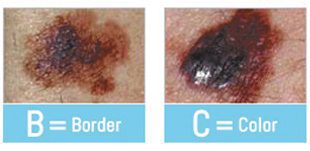By Todd A. Pezzi, M.D., M.B.A.


According to The American Cancer Society, roughly one in nine men are diagnosed with prostate cancer in their lifetime. Prostate cancer is the second leading cause of death for men in the United States. Men whose family members have been diagnosed with the disease are at a higher risk for developing symptoms, and should begin screening at age 40.
Additionally, older men are more susceptible to the development of prostate cancer, which means the risk for diagnosis increases as one ages. Approximately 60% of cases are diagnosed in men 65 and older, with an average diagnosis age of 66 years old.
While these statistics may seem alarming, they demonstrate the crucial role of cancer screening for men’s health. An individual’s treatment options for prostate cancer depend in part on how soon the diagnosis is uncovered. Annual screenings make early diagnosis more likely by detecting issues before they cause debilitating symptoms. An early diagnosis also increases the chances of a successful treatment outcome.
What You Should Know About Prostate Cancer Screening
The primary test that is commonly used to screen for prostate cancer is called a prostate specific antigen (PSA) test, which measures the level of PSA in the blood. PSA is a substance that is made by the prostate and found in increased amounts in the bloodwork of men who have prostate cancer. A high level of PSA can also indicate a prostate infection or inflammation, an enlarged prostate, or negative drug interactions stemming from prescription medication.
This is the most effective way to detect early-stage prostate cancer. While the screening may cause temporary discomfort, it allows patients to pursue a greater number of treatment options and achieve higher survival rates than those who discover prostate cancer in its latest stages. The American Urological Association (AUA) strongly recommends consideration of PSA testing in men aged 55-69 years of age, recognizing that the greatest benefit of screening is within this age group.
What If Prostate Cancer Screening Results in a Diagnosis?
When you receive a prostate cancer diagnosis, it is important to partner with a health care professional who will put the patient’s needs first. Therefore, the best first step is to seek medical advice and compassionate treatment from highly skilled, experienced professionals who are leaders in their field.
At Advocate Radiation Oncology, our team of board-certified radiation oncologists have trained at some of the nation’s most prestigious institutions. As the region’s premier locally-owned and operated radiation oncology practice, we combine decades of experience with advanced technology and world-class technique as we work closely with each patient in developing a personalized treatment plan.
This is because there are many types of treatment protocols that are successful for prostate cancer. In addition to surgery, radiation therapy is the most common treatment for prostate cancer – and is generally considered to be of equal effectiveness. In fact, radiation therapy often helps minimize the side effects of treatment for patients who want to return to their daily lives after each treatment. At a medical practice like Advocate Radiation Oncology, which uses industry-leading machines to treat patients, it is possible to complete a full course of radiation with little inconvenience due to highly effective methods of prostate cancer treatment.
As a result, there is no “best” option or general treatment that suits all patients. Instead, a personalized approach is necessary to determine which approach and type of prostate cancer treatment will best address an individual patient’s needs. And, it all starts with proactive screening.
About the Author
Dr. Todd Pezzi serves as a radiation oncologist at Advocate Radiation Oncology, practicing in Naples and Bonita Springs, Florida.
Advocate Radiation Oncology
Cape Coral
909 Del Prado Blvd. S
Cape Coral, FL 33990
(239) 217-8070
Bonita Springs
25243 Elementary Way
Bonita Springs, FL 34135
(239) 317-2772
Fort Myers
15681 New Hampshire Ct.
Fort Myers, FL 33908
(239) 437-1977
Port Charlotte
3080 Harbor Blvd.
Port Charlotte, FL 33952
(941) 883-2199
Naples
1775 Davis Blvd.
Naples, FL 34102
(239) 372-2838
 Southwest Florida's Health and Wellness Magazine Health and Wellness Articles
Southwest Florida's Health and Wellness Magazine Health and Wellness Articles

